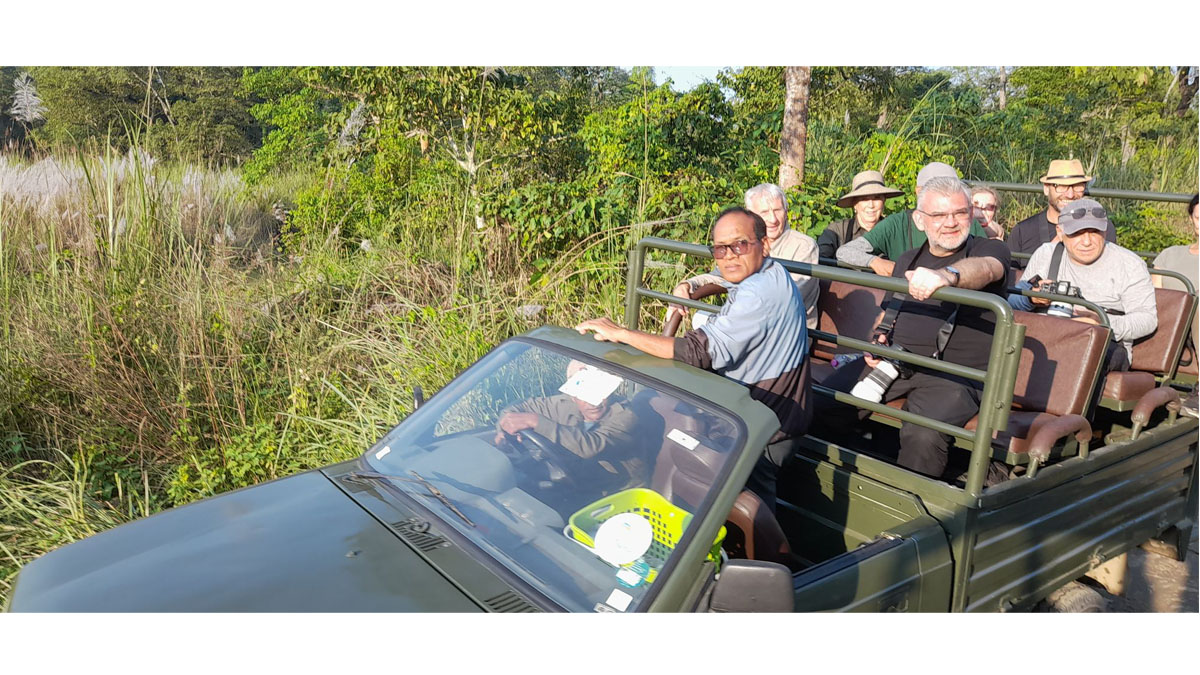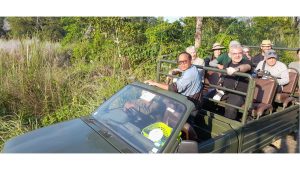
Foreign Tourists Outnumber Domestic Visitors at Chitwan National Park

Foreign tourists have surpassed domestic visitors at Chitwan National Park (CNP) for the first time in recent years, with the park generating over NPR 100 million in revenue in just five months.
From mid-July to mid-December of the current fiscal year, a total of 72,461 people visited the park. Of these, 33,730 were foreign tourists, slightly outnumbering the 32,880 domestic visitors. An additional 5,851 tourists were from South Asian Association for Regional Cooperation (SAARC) countries, according to Avinash Thapa Magar, Information and Conservation Officer at CNP.
Revenue from domestic and international visitors during this period reached NPR 106.71 million. The increase in foreign tourists highlights CNP’s growing appeal as a global travel destination, with its unique biodiversity and conservation efforts drawing attention worldwide.
During the same period, CNP released 41 gharial crocodiles—40 female and one male—into the Rapti River from the Gharial Breeding Center in Kasara to support the species’ natural population. The release was conducted over three phases.
Efforts are also underway to relocate rhinos from the western part of the park to the eastern region due to recurring threats of flooding from the Narayani River. According to Officer Magar, the relocation is critical to ensuring the long-term safety and conservation of the rhino population.
As part of its ongoing conservation strategy, CNP has been holding consultations with local communities to draft an action plan for wildlife protection and anti-poaching measures. A recent meeting brought together senior officials, including Haribhadra Acharya, Senior Ecologist at the Department of National Parks and Wildlife Conservation; Dr. Ganesh Panta, Senior Conservation Officer at CNP; and representatives from the Gorakh Battalion, Divisional Forest Office, Buffer Zone User Committees, and local businesses.
The collaborative approach underscores the park’s commitment to balancing conservation with community engagement, ensuring the protection of its unique wildlife and supporting sustainable tourism.












Comments